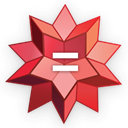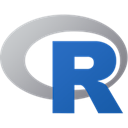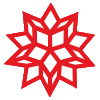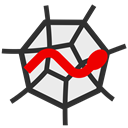Unleashing Your Potential: The Best GNU Octave Alternatives
GNU Octave, a powerful open-source computer program, has long been a go-to for numerical computations, offering a MATLAB-compatible environment for solving linear and nonlinear problems, and visualizing data. As part of the GNU Project, it's free software under the GNU General Public License, making it accessible to many. However, users often seek GNU Octave alternatives for various reasons, including specific feature needs, platform preferences, or a desire for different user experiences. This article explores some of the top contenders that can fulfill your computational needs.
Top GNU Octave Alternatives
Whether you're looking for commercial-grade power, advanced statistical capabilities, or a more integrated development environment, there's a GNU Octave alternative out there for you. Dive into our curated list to find the perfect fit for your projects.

Wolfram Alpha
Wolfram Alpha stands out as a "Computational Knowledge Engine," distinct from traditional search engines, by directly computing answers to factual queries. While not a direct programming language like GNU Octave, its powerful computational capabilities for equation solving and math make it an excellent alternative for quick calculations and understanding complex problems. It's available on Freemium, Web, Android, iPhone, Windows Phone, iPad, and Kindle Fire platforms.

MATLAB
MATLAB is an enterprise-class computing environment and programming language renowned for numerical computation, offering a direct commercial counterpart to GNU Octave. It provides extensive features like Simulink for model-based design, batch plotting, and an embedded debugger. MATLAB is a commercial software available across Mac, Windows, Linux, Web, Android, iPhone, and iPad, making it a robust GNU Octave alternative for professional and academic settings.

R (programming language)
R is a free and open-source software environment specifically designed for statistical computing and graphics. As a GNU project, it shares the open-source ethos of GNU Octave but specializes in data analysis and visualization. With features like automatic data loading and data mining, R is an ideal GNU Octave alternative for statisticians and data scientists, available on Mac, Windows, Linux, and BSD platforms.

Jupyter
Jupyter offers an open-source, interactive environment for data science and scientific computing, supporting over 40 programming languages. Its browser-based interface, interactive visualization capabilities, and support for literate programming make it a highly flexible GNU Octave alternative. Jupyter is free and open-source, available on Mac, Windows, Linux, Web, and Cloudron, perfect for collaborative and multi-language projects.

Sage
Sage is a free and open-source mathematics software system that combines the power of many existing open-source packages into a common Python-based interface. Its focus on symbolic computation provides a strong alternative to GNU Octave, especially for users needing advanced mathematical operations beyond numerical analysis. Sage is available on Mac, Windows, Linux, and Web platforms.

Mathematica
Mathematica is a definitive technical computing system that extends far beyond GNU Octave's core numerical capabilities, encompassing machine learning, neural networks, data science, and advanced visualizations. It's a commercial software with robust features like symbolic computation, calculus solving, constructive geometry, and a graphical component, available on Mac, Windows, Linux, and Web.

Scilab
Scilab is a free and open-source scientific software package for numerical computations, offering a powerful open computing environment for engineering and scientific applications. Much like GNU Octave, Scilab provides a robust environment for numerical analysis, making it a very direct and accessible alternative. It's available on Mac, Windows, and Linux.

Spyder
Spyder (Scientific PYthon Development EnviRonment) is a free and open-source Python development environment that provides MATLAB-like features in a lightweight package. For those preferring Python for numerical computations and data science, Spyder serves as an excellent GNU Octave alternative by offering a familiar IDE layout and powerful Python integration. It's available on Mac, Windows, and Linux.

Julia
Julia is a high-level, high-performance dynamic programming language specifically designed for technical computing. Its syntax is familiar to users of other technical computing languages, and its focus on speed (thanks to automatic JIT compilation) and parallel computing makes it a compelling GNU Octave alternative for computationally intensive tasks. Julia is free and open-source, available on Mac, Windows, and Linux.

wxMaxima
wxMaxima is a document-based interface for the powerful computer algebra system Maxima. While GNU Octave focuses on numerical computation, wxMaxima excels in symbolic computation and algebra, making it a strong GNU Octave alternative for users who need to manipulate mathematical expressions symbolically. It's free and open-source, running natively on Windows, X11, and Mac OS X.
The world of numerical computation and scientific programming is rich with diverse tools beyond GNU Octave. Whether you prioritize open-source flexibility, commercial support, specific language features, or a particular user interface, there's a GNU Octave alternative tailored to your needs. Explore these options to find the software that best empowers your projects and enhances your workflow.